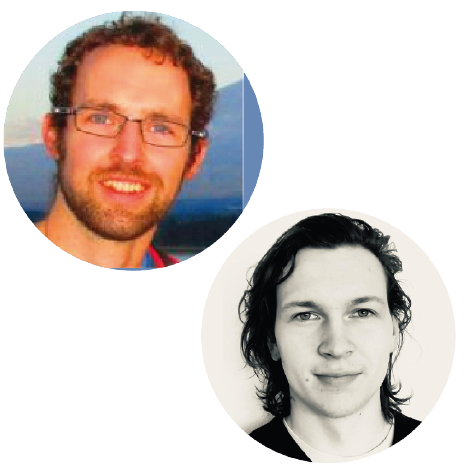OT-ST-WS-08 | Data preparation
Dr. James Imber, Karl Kortum, Björn Tings, Dr. Nikolay Koldunov, Dr. Stephan Kloep, Dr. Jan-Ocko Heuer

Interested in looking into characteristics of different types of data?
Data holds the answers to all manner of questions and analysis methods can extract those answers - linking the two is “data preparation”. Anyone interested in working with data will likely need to know at least some of the principles outlined.
Furthermore, cross-discipline data analysis is part of the scientific progress. This workshop offers the opportunity to look into data preparation procedures for different data types and to learn about their individual characteristics.
Contents
In the social sciences, “qualitative data” refers to various kinds of data – such as interview transcripts, observation protocols, field notes, pictures, audio or video recordings, and material artefacts – that are less structured than “quantitative data” and thus cannot – and often should not – be easily transformed into numerical relatives for statistical analysis. By contrast, qualitative data are often heterogeneous, complex, very information-rich, highly context-dependent and sensitive – thus posing particular ethical, legal and practical challenges for research data management (RDM), including data protection and informed consent, anonymization, documentation, and sharing beyond the research project of origin. This hands-on workshop aims to make participants familiar with major challenges of preparing qualitative social science data for (qualitative or quantitative) analysis and to introduce them to good practices and RDM tools to deal with those challenges. Particular attention is given to appropriate research documentation using a ‘study report’ and various context materials, and to the anonymization/pseudonymization of qualitative text data, including an introduction to the tool ‘QualiAnon’.
The following topics will be primarily addressed:
- What are qualitative data? Examples and characteristics
- Why, for Whom and How are qualitative data important?
- Producing and preparing qualitative data for research/analysis
- Focus: finding, re-using and sharing qualitative data
- Focus: documenting qualitative data and contexts
- Focus: anonymizing qualitative (text) data
Prior knowledge
---
Technical requirements
Own computer with modern web browser; WiFi: Access to eduroam
Further reading
Corti, Louise; van den Eynden, Veerle; Bishop, Libby; Woollard, Matthew (2020): Managing and sharing research data: A guide to good practice. 2nd ed. Los Angeles: SAGE Publications
Contents
An introduction to the preparation of data for analysis, beginning with the initial production or acquisition through to an analysis ready dataset. The specific case of image data will then be discussed in more detail using examples from satellite-based Earth Observation.
Outcomes
An understanding of how to approach a new dataset and the typical steps that will be necessary in a variety of contexts. An insight into the preparation of image data and practical experience performing such tasks using Python.
Prior knowledge
Basic experience with programming on any language would be an advantage.
Technical requirements
Own computer with modern web browser; WiFi: Access to eduroam
Further reading
---
Contents
We will cover the following topics:
- Where to find climate model information
- netCDF data format
- Basic types of atmospheric, ocean, land and sea ice data
- Validation of model data
- Ways to extract weather and climate information for particular regions and times in past and the future
Outcomes
Basic understanding of strengths and weaknesses of data from Earth System models. Information on what kinds of data on weather and climate are available, how to get it and extract and post-process it.
Prior knowledge
Some exercises will require a degree of familiarity with the Python programming language. Some specific extension packages will be used but prior knowledge of these will not be assumed. Basic experience with programming on any language would be an advantage.
Technical requirements
Own computer with modern web browser; WiFi: Access to eduroam
Further reading
---

![[Translate to English:] Öffnet Startseite der U Bremen Research Alliance](/fileadmin/user_upload/sites/research_alliance/logo/UBRA_Logo.png)



